How To Know When You Need New Brakes: How To Check Your Brakes
With age and use, car brakes can become worn and need replacement. It’s good to know the signs of when it’s time for new brakes. Signs that might indicate your brakes need replacing include: squeaking while stopping or slowing down, a grinding noise when you brake, or the brake pedal feeling too high up. Getting a tune-up from an auto mechanic may be time if you notice any of these symptoms.
How to tell if your brakes need replacing: Look and hear for the following warning signs.
It is possible to determine whether you need new brakes based on several warning signs.
- You hear a squeaking noise when you apply the brakes.
- You hear grinding noise when you apply the brakes.
- You feel a vibration when you apply the brakes.
- You feel a pulsating or grinding sensation when you apply the brakes.
- You feel a vibration or grinding sensation when you apply the brakes.
- Your vehicle pulls to one side
Vehicles need to be maintained regularly, including the brakes There are several warning signs to look for when it’s time to replace brake pads According to the condition of the pad and the rotor, brake pads need to be replaced routinely
Signs that you need new brakes include: excessive noise or vibration from the brake system, poor braking performance, discoloration or rust on the brake parts, and metal shavings in your fluid
What does getting new brakes mean?
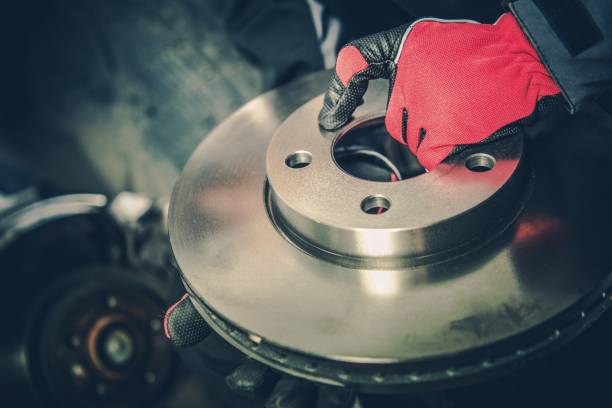
To get new brakes means to replace the existing brakes on your car with new brakes. When you get new brakes, you are replacing them with new brakes so that you can avoid the wear and tear that new brakes can cause.
Disc brakes are a type of braking system found on newer vehicles. They are composed of a caliper, pads, rotors (the disk), and a hydraulic control system. The hydraulic system clamps down on the brake disc, bringing the brake pad and disc into contact in response to a brake application.
Through friction, kinetic energy is converted to heat energy, slowing the vehicle. After prolonged use, both the pads and rotors suffer wear and tear, affecting stopping performance and potentially creating hazardous situations.
It is important to have your brake pads replaced regularly, depending on the type of use your vehicle has. Brake pads are usually replaced every 6-12 months or when they show signs of wear and tear.
There are different types of brakes, and each requires a specific type of pad replacement. When your brakes aren’t working properly, it is important to recognize the warning signs and take immediate action to rectify the problem.
Brake pad replacement costs vary depending on your location, your car’s model and make, the time of year, and other factors. Brake pads are a necessary part of any car. Brakes need to be replaced at least every 7 years, depending on the type and make of your car.
When you get new brakes, make sure to have them checked by a mechanic or technician first to ensure they meet your specific needs and expectations for your vehicle. The right brake pads will provide increased stopping power while reducing noise and vibration in the car.
You should choose brake pads that match your driving style and vehicle specifications since they are available from various brands. Once you’ve chosen the right brake pads, it’s important to get them installed by a professional mechanic. This will ensure that your brakes work properly and without issue.
If you ever have questions about brake pads or how to maintain them, consult a mechanic or technician who is familiar with the specific needs of your car and driving style.
19 Signs Your Car Needs New Brakes ASAP
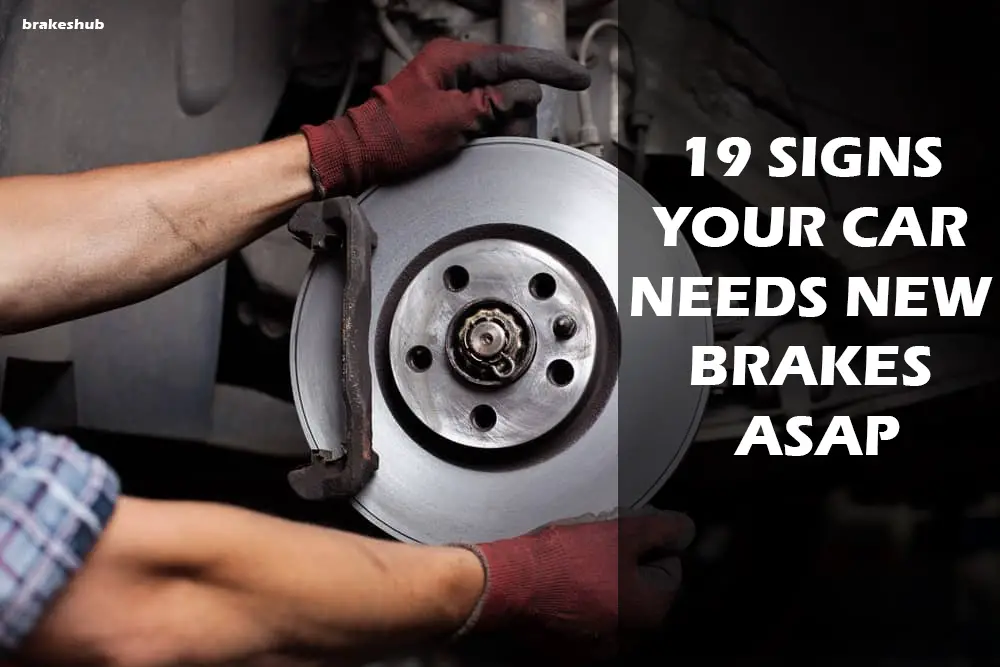
It is recommended to replace brake pads every 50,000 miles. If you observe one or more of these warning signs, you might need to replace your brake pads. It’s important to replace brake pads as soon as possible if they are worn out or damaged.
Using good brake pads can prevent collisions, save people’s lives, and prevent injuries. It appears that your brake pads need to be replaced. Your brakes feel spongy or “floaty” when you apply the brakes.
You have to use more force to stop your car than usual. The discs in your brake system seem warped or bent, or they make a “grinding” noise when you brake hard. There’s rust on the calipers, brackets, or other parts of your braking system
High-pitched screeching
The high-pitched screeching noise you hear when applying the brakes comes from a little piece of metal built into your brake pads. Small metal attachments are specifically used on the pad backing plate to cause this sound. A similar screeching sound may be heard when brakes are exposed to damp, wet conditions, such as after a rainstorm.
Visible wear-and-tear
To inspect brake pads, look between wheel spokes and see if a quarter-inch of the pad is present. If you are experiencing grinding noise while applying pressure to the brake pedal, it is time to replace the pads.
Visual inspection of brakes every so often can help you avoid problems down the road. Visible wear-and-tear is a common sign of dog aging. Signs of visible wear-and-tear include dried blood, bald patches, and wrinkles in the skin.
Aging can also cause arthritis or hip dysplasia, leading to joint pain and difficulty moving around. Veterinarians may recommend treatments such as vaccines, supplements, or surgery to improve the health and appearance of your dog’s coat.
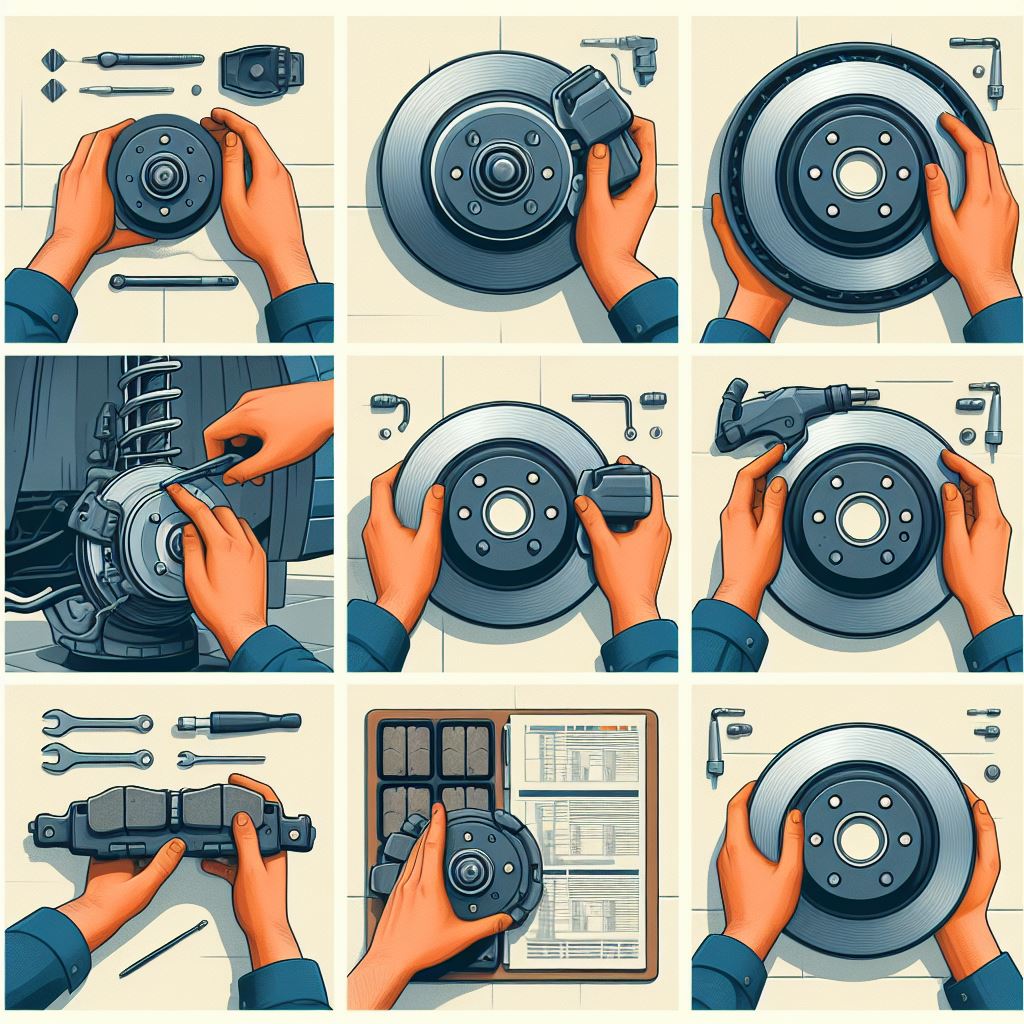
Screeching despite new pads
While braking, brake pads may make a screeching sound when damp. After a few times of using your brakes, a sound should disappear, which indicates that you just have a bit of moisture on the brake pads or shoes.
Brake pedal vibration
Brake pedal vibration is a symptom of warped rotors. Driving down a steep mountain or towing will force your rotors to warp from prolonged hard braking. These conditions cause a tremendous amount of friction, which causes the rotors to warp by heating up.
Slow stopping response
If the brakes don’t stop quickly, there may be an air leak or a brake fluid leak. The mechanic will likely find the source of the leak.
Extremely sensitive brakes
Brake pads that are worn down and need to be replaced may make your brakes feel sensitive when you stop. Don’t drive if your brakes are failing – it will put everyone on the road at risk. Check for signs of brake pad wear and change them as soon as possible to keep your car safe
Extremely insensitive brakes
Whenever you mash your brakes, you will hear a grinding sound. Replace your brake pads immediately. If you hear persistent squeaking or squealing, your brake pads need to be replaced. You should have your car and brakes inspected by a professional if your brakes squeak persistently.
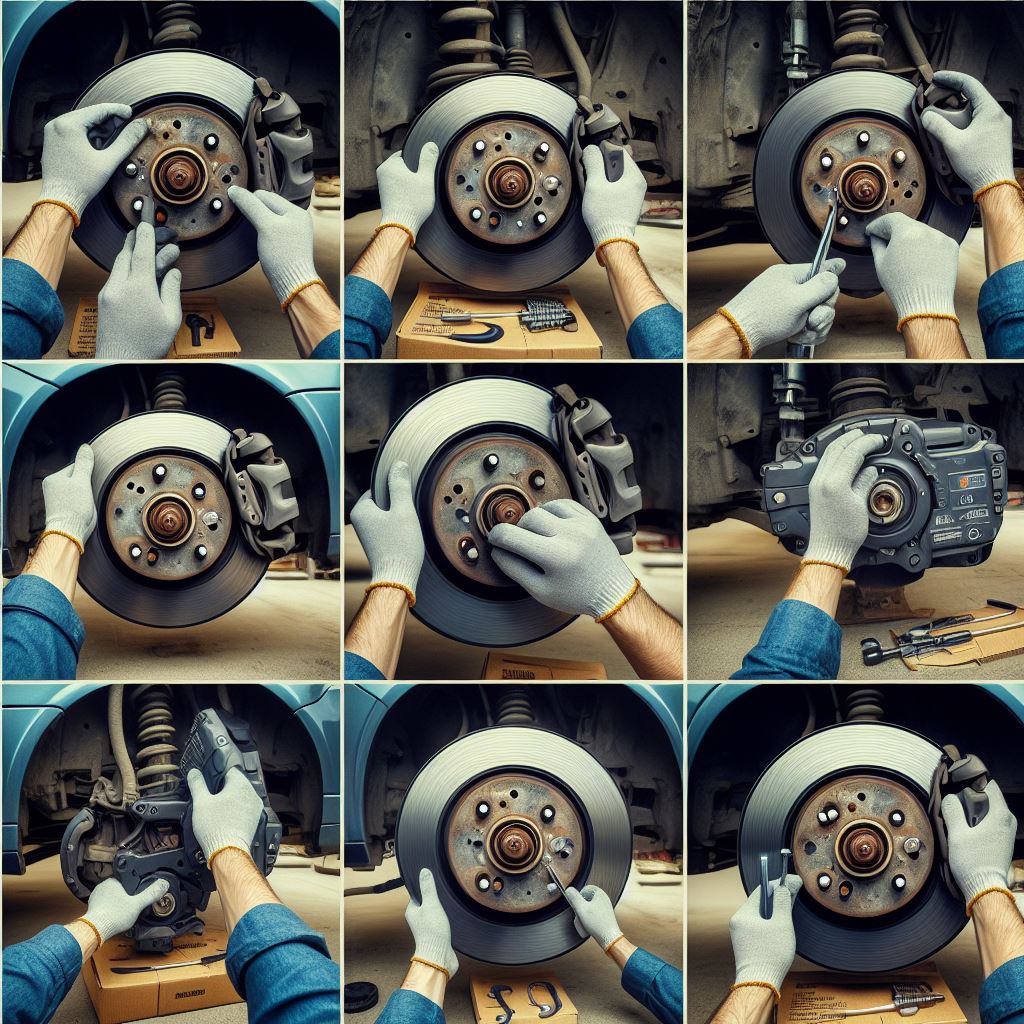
Driveway puddle
Brake fluid can be a sign of leakage in the car’s brake system. Checking under the car to see if the brake fluid is leaking is an easy way to check. A puddle of brake fluid may mean it’s time to have your car repaired by a mechanic.
Pulling to one side
Brake linings may need adjustment or brake fluid replaced due to uneven wear. This can indicate a problem with the hydraulic system. In addition to making it more difficult for you to drive safely, this can also negatively affect other components of your car.
Heavy grinding sounds
If you hear metal grinding or a rumbling growl, it’s a sign your brakes are worn down and need to be replaced. Brakes usually aren’t very loud, but after using them for a while, you might notice certain sounds that indicate the need for new brakes.
The squealing or squeaking sound is common with brake pads and is designed to let you know when they’re getting close to wearing out. Grinding or rough metal scraping sounds may be caused by brake pad wear. In the absence of pads replacement, the sound will deteriorate over time. To prevent further damage, a brake service may be necessary.
Indicator light
The brake indicator light is a signal that indicates when it’s time to replace brake pads or brake fluid. The brake indicator light may come on if the brake pads are worn down or if the brake fluid level is too low. When the brake pads are threadbare, they cause the brake caliper piston to extend further and fill with braking fluid, which triggers the light.
Squeaky sounds
Squeaky sounds are an indicator of brake pad wear. Brake pads should be replaced when they squeak. Grinding noises can indicate that brake pads have worn down completely and need to be replaced. Squeaky sounds can be a sign of a problem. If the sound continues, it may be time for service. Services may include the replacement of pads or rotors.
Vibrating pedal
When a brake pedal vibrates, it indicates worn-out brake pads. If you notice the brake pedal vibrating, you should have your car checked immediately.
Grinding metal sound
Changing your brake pads may also result in a deep grinding metal noise. Small metal ridges are put into the bottom of some brake pads to make a loud noise, alerting the driver that it’s time to change the brake pads. If you hear this deep grinding sound, you should consult an auto professional as soon as possible.
The 1/4 inch rule
The importance of good brakes cannot be overrated.
Taking Longer To Stop
Longer to stop is a term used in the context of traffic engineering. It indicates that the time it takes for a vehicle to come to a complete stop, as measured from the moment the driver presses the brake pedal to when the vehicle comes to a stop, is longer than it would be if the roadway were not congested.
Brake Pad Indicator Light Comes On
A brake pad indicator light might come on when driving if the pads are worn out and need to be replaced.
Your Brake Pads Appear To Be Thin
If you have thin brake pads, this could be caused by the pads wearing down faster than normal. This may also mean that your brakes are not working well.
Experiencing Brake Issues?
If you are experiencing brake issues, it could be a sign that you need to replace the brakes on your car. Brake pads can become worn and cause slipping or grinding noises when the wheels turn. You should also check your brake fluid level and correct it and the brake pads’ thickness.
What sounds should you listen for?
When designing a website, the sound of a click is what you need to listen for. In addition to being easy to navigate, a well-designed website should require the least number of clicks and should not require any unnecessary steps.
Brake pads will squeal or squeak if they are worn down. Brakes can also make a grinding or growling sound when they’re not replaced. If you don’t replace your brake pads, they may start to grind and growl.
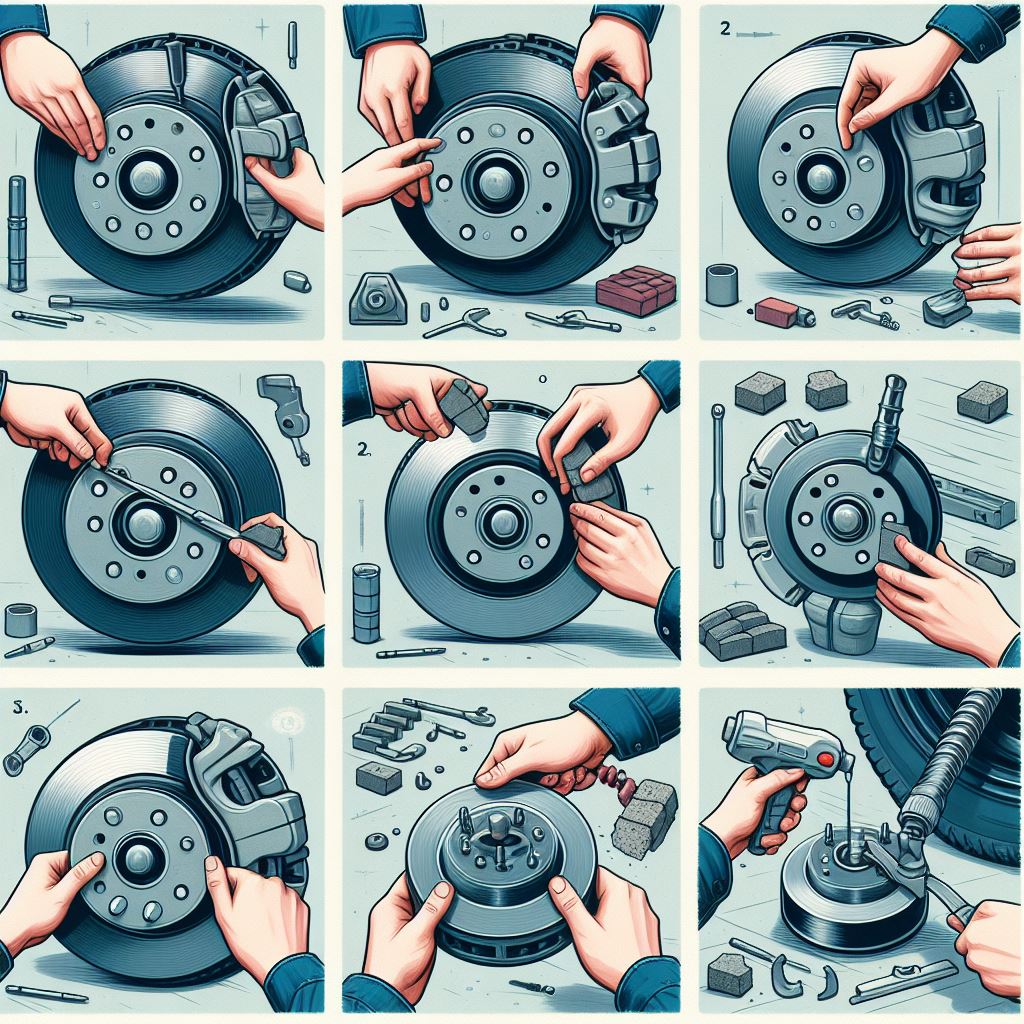
Reduced responsiveness
A decrease in braking performance can be caused by various factors, including the wear on the brake pads and hydraulic lines. To identify the reason for reduced braking performance, it is important to have your vehicle inspected.
Pulling to one side or another
This indicates a problem with the pads or hydraulic system. It can impact various other components in the vehicle, including the steering and suspension systems.
Vibrations in the pedal
Brake pedal vibrations can be caused by various factors, including wheel alignment and tire balance. Brake glazing results from brake pads and rotors becoming uneven or deformed. Brake pulsing may be the vehicle’s anti-lock braking system working.
Visual inspection
If the brake pads wear down to 3 mm or 4 mm, they need to be replaced. A special instrument can be used to check brake pads. Checking brake pad thickness can help identify issues before screeching and scraping begins
How often do you need to change your brakes?
Brakes are a vital part of any car, so it’s important to change them often. Most cars are designed to change your brakes, but you should check with your car’s owner’s manual to ensure that you can. Brake pads can also wear down over time, so it’s important to replace them regularly if you drive frequently.
There is no standard for how many miles your brakes should last before needing replacement, but driving habits and the type of car you drive play a part in this decision. Brake maintenance is recommended every 5,000 miles.
Your owner’s manual can provide general guidelines for brake maintenance. Check brakes every 5,000 miles and record any maintenance in your auto maintenance log. Brakes should be inspected and, if necessary, replaced every 7,500 miles or every three years, whichever comes first.
A brake fluid change should be performed every three months or whenever the level drops below the minimum specified in the owner’s manual. If your brakes feel squishy or spongy when you apply pressure, they may need to be replaced soon.
How Long Should New Brakes Last?
When you’re new to the car world, you may not know that brake pads often last between three and five years. It is probably only necessary to change them every few years if you live in a city. However, you’ll probably have to change them every year if you live in a snowy area.
Brakes typically last 50,000 miles. In addition to driving behaviors and conditions, a brake’s lifespan is affected by some factors. The brakes on your vehicle play a crucial role, so you need to inspect them regularly.
As you become familiar with how your brakes typically function, you’ll easily notice changes in their performance, making it easier to determine when they need to be serviced.
How do you know when your car needs new brakes?
To find out, you should first check the “brake pad wear indicator.” This metal shim sits between the brake pad and the brake drum. The metal shim wears down gradually over time, and it changes color as it wears down.
When the metal shim reaches a point where it’s white or silver, it’s time for new brakes. This method can also determine how much braking power your vehicle still has. Simply look at the tread on each tire; if there are deep grooves, you have plenty of life remaining in those tires.
However, if they’re worn smooth, you need new ones soon. Checking your brake pads for wear and damage is a good habit. The sooner you find out that they need to be replaced, the less likely you will experience a more serious brake failure, and the less costly the fix will be.
Some things to look for are rubbing or grinding, metal on metal, or if the rotor appears warped or has excessive wear. Most drivers are unaware that it is important to get the brakes repaired when they begin to grind or pulse. Brake pads produce friction against the drum, slowing down the car gradually until you stop.
However, if your car’s brake pads are worn out or damaged, you will feel a grinding sensation while braking. Your brakes might need replacing at this point. Do you notice a squeak or a grinding noise when you’re braking?
Have you heard a high-pitched squeal from the brakes? If so, it’s time to take your vehicle to an auto mechanic as soon as possible. Brakes that need replacement could cause serious injury or death.
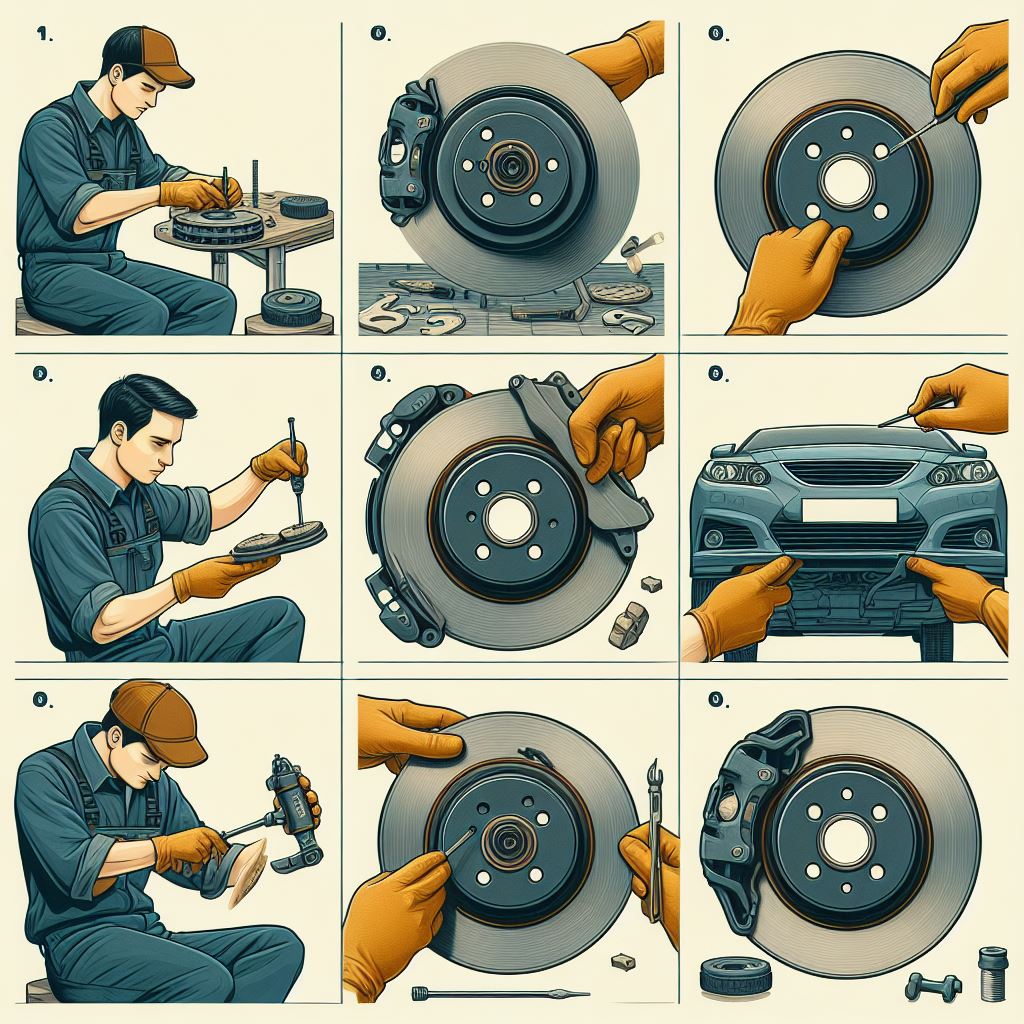
How to know when you need new brakes
How do you feel when you apply the brakes? Is there a screeching or grinding noise? Does your car seem to shake or shudder when you use the brake pedal? Have you noticed that it takes longer to stop than usual, especially downhill grades?
If so, it may be time to replace your brake pads and discs. The average car needs new brakes every 25,000 miles. Ask your mechanic for an inspection to find out if you need new brakes.
If brake pads are less than 1/8 of an inch thick, you will need new brake pads. Remember that it’s important to inspect your brakes periodically because many problems associated with braking can cause accidents and collisions. People don’t always realize when they need new brakes, and the average car needs them every 25,000 miles.
What causes brake wear?
A car’s brakes can range from being slightly worn to completely worn, depending on the age of the vehicle and the general maintenance it has been given. A mechanic can check if your current brake pads are still in good condition if you’re unsure what kind of brake pads you need to buy.
Many people overlook the importance of regular brake maintenance until they notice an indicator that their brakes are going bad. Those old brake pads may need to be replaced with some new ones if this is your experience.
Signs of brake wear
Most people don’t know every time they need new brakes, but it’s important to be aware of the warning signs. Most drivers know to pull over if their brake lights turn on and stay on or if their car is shaking or making a strange noise.
While those are obvious signs that you need new brakes, other telltale signs can help you recognize when your braking system needs repair. The first one is the smell of burning rubber from your brakes.
How do you replace the brakes?
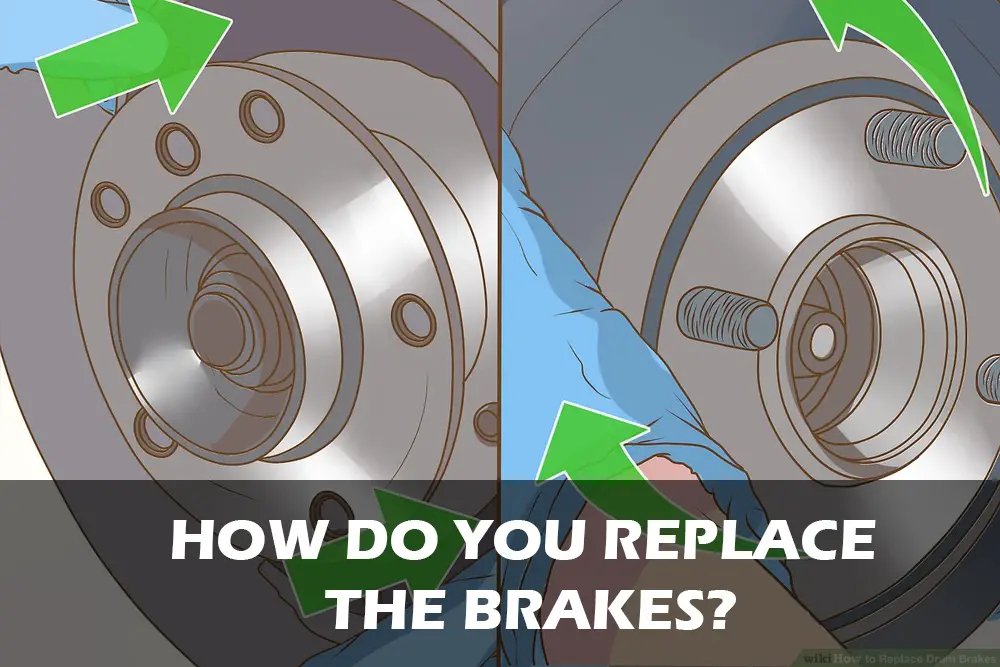
Replacing your car’s brakes can be a daunting task, but it can be done relatively easily with the right tools and a little knowledge. The first step is to jack up the car and remove the wheel.
Taking off the wheel lets you remove the brake caliper from the rotor. The caliper is held in place by two bolts, which can be removed with a socket wrench. Once the bolts are removed, the caliper can be pulled off the rotor.
The brake pads are then visible and can be removed by prying them off of the caliper. The new brake pads are then placed on the caliper, and the bolts tightened back into place.
The wheel is then replaced and lowered to the ground, with a torque wrench used to tighten the lug nuts. The car is then driven around for a few minutes to ensure no problems with the brakes. There is a possibility that you might want to get a mechanic to guide you if you have never done this before.
This is the best time to get your car’s oil changed when your car requires one. At that point, your mechanic can also check the brake fluid levels and make sure that everything is working properly.
The cost of new brake pads will run from $40 to $200, depending on the make and model of your car. If you have to replace the rotors, that will be an additional $50 to $150 per rotor.
The problem should be checked as soon as possible if your brakes are making a grinding noise when you apply them. Grinding brakes are a safety hazard and can damage your rotors as well.
How to tell if you need new rear brakes
Rear brakes are a vital part of any vehicle to prevent the car from hydroplaning or spinning out. However, it’s not always easy to detect if your brakes need replacement. Here are some ways one can tell when their rear brake needs replacement:
- When you press down hard on the brake pedal, you feel resistance, and this means that the brake pads are rubbing against the rotors.
- Your brake light stays on even after you stop driving.
- You hear loud squealing noises coming from the rear wheels.
- When you apply your brakes, the car pulls to one side.
- The brake pedal gets harder to push down.
- Brake fade occurs more often than normal.
- The brake pedal feels loose.
- The brake pedal vibrates when you apply the brakes (especially true if your brakes squeak).
- You notice that your tires wear unevenly.
- You notice that the front end of your car starts pulling to the left or right when you apply the brakes or when you get onto a hill.
How do you know when you need new back brakes?
Your car’s brakes should never be compromised to save your life, and they must work properly and stay in good condition to be safe and avoid accidents. Whenever you notice that they are wearing out excessively, replace them as soon as possible.
How do you know when you need new brake rotors?
The brake rotors need to be replaced if you see any following signs. One sign is that your car pulls to one side when you brake, and another sign is that your brakes squeal or screech when you use them.
A brake that feels spongy or vibrates excessively may also indicate you need new brake rotors. Having your car checked by a mechanic will help you determine whether you need brake rotors replaced.
How do you know when you need new car brakes?
There are a few telltale signs that you need new car brakes. One sign is that your car pulls to one side when you brake. Another sign is that your brake pedal feels “soft” or “spongy.” In this case, you need to have your brakes checked
Frequently Asked Questions [FAQs]
1. How can I tell if my brakes need replacing?Listen for squeaking or squealing noises when you brake, look for vibrations in your steering wheel, or if your car pulls to one side when braking. If your brake pedal feels soft or spongy, or if you notice a burning smell while driving, these could also be signs your brakes need checking.2. What does it mean if my brake pedal feels spongy?A spongy brake pedal could indicate air in the brake lines, worn brake pads, or a problem with the master cylinder. If you experience this issue, it’s crucial to have your brakes inspected as soon as possible to prevent further damage or potential accidents.3. How often should I check my brakes?It’s recommended to have your brakes checked at least once a year or every 12,000 miles, whichever comes first. However, if you notice any signs of brake problems, get them inspected immediately.4. What’s the average lifespan of brake pads?The lifespan of brake pads can vary greatly depending on your driving style, the type of vehicle, and the quality of the pads. On average, brake pads should last between 25,000 and 70,000 miles.5. What are the consequences of driving with worn-out brakes?Driving with worn-out brakes is dangerous and can lead to accidents due to increased stopping distances. It can also cause damage to other brake components, leading to more expensive repairs down the line.6. Is it normal for new brakes to make noise?While some noise is normal during the break-in period of new brakes, persistent noise could indicate improper installation or a problem with the brake components. If you’re concerned about brake noise, have your vehicle inspected by a professional.7. How much does it cost to replace brakes?The cost to replace brakes can vary significantly depending on the make and model of your vehicle, the type of brakes, and the labor costs in your area. On average, brake pad replacement can range from $100 to $300 per axle, while brake rotor replacement can cost between $200 and $400 per axle.8. Can I check my brakes myself?While it’s possible to check some aspects of your brakes yourself, such as brake pad thickness and rotor condition, a comprehensive brake inspection should be performed by a trained professional. They have the tools and expertise to detect potential issues that may not be obvious to the untrained eye.9. How do I know if my brake rotors need replacing?Signs that your brake rotors may need replacing include deep grooves or scoring on the rotor surface, vibrations when braking, or if your vehicle takes longer to stop than usual.10. What happens during a professional brake inspection?During a professional brake inspection, a technician will check the condition of your brake pads, rotors, calipers, and brake lines. They’ll also check the brake fluid level and look for leaks. If necessary, they’ll provide recommendations for any needed repairs or replacements.
Conclusion
If your car is making any sort of grinding, hissing, or squealing noise, it’s time to get new brakes. You can also check the dashboard for warning lights. If your car is pulling to the right or left when braking, this may indicate that one of your front brake pads is worn down. The vehicle may also pull towards the side on which the problem is located.
